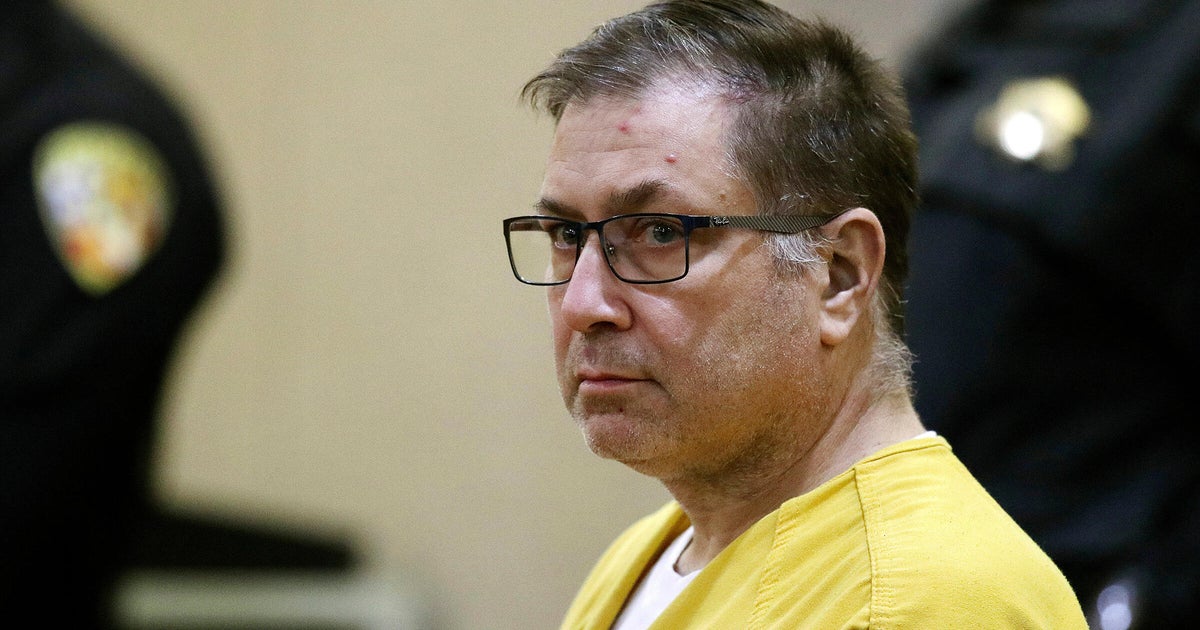Death Penalty Case In SD Goes Before 8th Circuit
ST. PAUL, Minn. (AP) -- Jurors who sent a South Dakota man to death row for the 1990 rape and murder of a 9-year-old girl should have been told he would have been ineligible for parole had he been sentenced to life in prison, a defense attorney argued Thursday before a federal appeals court in Minnesota.
Attorney Julie Pitt told a three-judge panel of the 8th U.S. Circuit Court of Appeals in St. Paul that Donald Moeller's rights were violated during his 1997 trial in South Dakota state court because he was sentenced to death by a jury that falsely thought he may otherwise have been released on parole. Pitt asked the court to reverse Moeller's conviction and sentence.
Moeller was convicted of abducting Becky O'Connell from a Sioux Falls convenience store, driving her to a secluded area, then raping and killing her. Her body was found the next day. Her throat had been slashed and she had been stabbed several times.
Moeller, 58, was first convicted in 1992 and sentenced to death for the slaying. The South Dakota Supreme Court overturned that conviction, ruling improper evidence was used at trial. He was convicted again in 1997 and again sentenced to death. The state Supreme Court upheld that sentence.
The case ended up in federal court when Moeller's attorneys filed a habeas corpus claim, alleging he was being held illegally because his constitutional rights were violated at his trial. A federal judge denied that claim, and Moeller appealed to the 8th Circuit.
Moeller's attorneys make several arguments in their federal appeal, including that his right to due process was violated because he had ineffective counsel, his attorney did not adequately defend him on the admissibility of DNA evidence, and the defense did not conduct its own testing on soil evidence that prosecutors claimed placed Moeller at the scene. The state argues none of those issues are a reason to grant Moeller's request for relief.
The bulk of Thursday's oral arguments focused on a question posed by jurors who decided Moeller's sentence. Pitt said jurors indicated they were confused when they asked Circuit Court Judge Arthur Rusch: "If the penalty of `life imprisonment without parole' should be imposed upon the defendant, will he EVER have a chance to appear before a parole board?" The capitalized "EVER" was underlined three times.
"All of the information which I can give you is set forth in the jury instructions," was Rusch's response.
Pitt said the law requires the judge to give a straight answer, and he didn't. She said the jury sentenced Moeller to death because they were under the false impression that he may be released from prison on parole if given a life sentence.
Jurors were "making a decision on whether he should live or die based on something totally speculative," Pitt said. "I think the jury in this case was looking for assurance that Mr. Moeller would never be released."
Sherri Sunden Wald, an attorney for the state of South Dakota, argued that the federal standard for reversing a state court decision must be based on whether the decision was "unreasonable." In this case, she said, the judge acted reasonably and did what was required under law by referring jurors back to the instructions.
Wald said the judge didn't want to lie to the jury or speculate, and the South Dakota Supreme Court found his actions were proper.
Pitt also argued Moeller's rights were violated during the trial because the state made his "future dangerousness" an issue by referring to him as a predator who "butchered" his victim. Wald has argued prosecutors simply were describing the crime.
The arguments were heard by judges Duane Benton, Richard Kopf and Steven Colloton.
In a separate appeal, Moeller also is challenging the constitutionality of South Dakota's lethal injection procedure.
(© Copyright 2011 The Associated Press. All Rights Reserved. This material may not be published, broadcast, rewritten or redistributed.)







